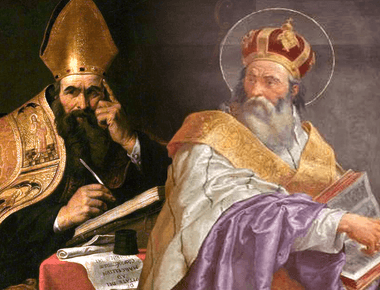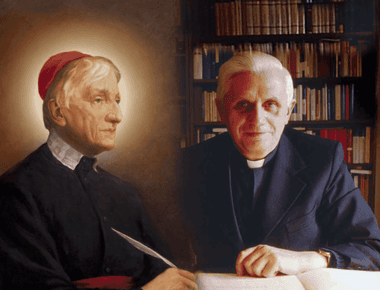
In the nineteenth century, tensions were acutely felt in religious controversies, such as the Protestant emphasis on sola scriptura, which often privileged individual interpretation over ecclesial tradition, and emerging Catholic debates over historical-critical methods, as exemplified by figures like Alfred Loisy and the Modernist Crisis. John Henry Newman navigated similar turbulent waters as an Anglican convert to Catholicism, developed an implicit pneumatological hermeneutics that positioned the Holy Spirit as the vital guide for both personal and communal engagement with the biblical text.










